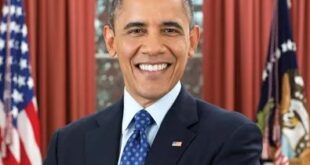*Fault continuous borrowing to finance consumption
*Say N410/$ exchange rate assumption unrealistic
*Pressures coming from exchange rate volatility
By Babajide Komolafe, Peter Egwuatu, Yinka Kolawole, Udeme Akpan and Nkiru Nnorom
Economic operators and private sector operators have said that the decision of the federal government to borrow N5.6 trillion to fund the proposed N13.98 trillion budget 2022, will further worsen the nation’s debt problem and push the country closer to insolvency.
They also faulted the exchange rate assumption of the proposed budget 2022, describing it as unrealistic given current realities in the foreign exchange market.
Key assumptions of the proposed Budget 2022 approved by the Federal Executive Council (FEC) on Wednesday include: Crude Oil Price benchmark of $57 per barrel, Crude oil production of 1.88m barrels per day, Exchange Rate of N410 per dollar, Inflation Rate of 10% and nominal Gross Domestic Product of N149.4 trillion.
The proposed budget includes total expenditure of N13.98 trillion, projected revenue of N9.16 trillion, deficit spending of N5.62 trillion and new borrowings of N4.89 trillion.
Commenting on the highlights of the budget, experts expressed concern over the N5.6 trillion deficit which they described as worrying given that the previous deficit has been used to finance consumption instead of infrastructure which will help boost the productive capacity of the economy.
‘It’s ironic to borrow money to pay debt’
Prof. Omowumi Iledare, the Ghana National Petroleum Corporation (GNPC) Professorial Chair, Oil and Gas Economics and Management, Institute for Oil and Gas Studies, University of Cape Coast, Ghana, said: “The deficit is more than 40 per cent of the budget. It is ironic to borrow money to pay debt if the bulk of the deficits are to service debt.”
“Government has been borrowing funds both locally and internationally to fund previous budgets and this has not yielded the desired benefits,” said Mr Ambrose Omordion, Chief Operating Officer, InvestData Limited.
Continuing, he said: “Borrowing itself is not a bad idea but the purpose for which it is being put to use is very germane. Previous borrowing by this government had shown that money borrowed was used more to meet recurrent expenditure than capital expenditure and this is not good for our economy.”
‘Nigeria heading towards insolvency’
Noting that the borrowing activities of the Federal Government is pushing the country towards insolvency, Mr Sola Oni, a chartered stockbroker and CEO, Sofunix Investment, said: “It can be argued that Nigeria is still under global threshold in the area of borrowing. The World Bank’s threshold is 25 per cent of GDP and Nigeria is still at 21.8 per cent. But this is not heart-warming as the country is moving close to the level of insolvency. It is true that there is nothing really wrong with borrowing provided it is channelled for productive use.
“Nigeria is not borrowing to finance infrastructure that can have multiplier effects such as boosting economic activities, creating employment opportunities and enhancing the GDP. But the country borrows to finance consumption and mounting expenditure. This is putting severe stress on our external reserve and the value of our currency.
“The option for survival is to invest in infrastructure, create market friendly policies that will enhance investment in the upstream, encourage export to earn forex and address insecurity with negative impact on the country’s risk.”
On his part, Lead Promoter, EnergyHub Nigeria, Dr. Felix Amieyeofori, noted that the deficit spending will likely be bigger than proposed given that 2022 is an electioneering year. He said: “I am worried about the deficit budget and the continuous borrowing to make up the numbers.
“The government must actively structure the economy to other viable revenue generating sectors in order to stay liquid.
“Regardless of the projection of the Minister of Finance, Budget and National Planning, Zainab Shamsuna Ahmed, our Debt/Revenue ratio may hit the ceiling in 2022, especially if one considers that it will be an electioneering season for this government.”
‘Deficit will be higher’
Expressing a similar position, Ayodeji Ebo, Head, Retail Investment at Chapel Hill Denham, noted that the deficit will be higher as the Federal Government is not likely to achieve the revenue projected in the proposed budget.
He said: “The revenue is highly optimistic with no major policy to ramp up revenue. I expect the actual deficit will be significantly higher with most of the revenue going into debt servicing. The continued rise in expenditure on a year on year basis without any strategy to boost revenue will continue to increase borrowings.
“The capital expenditure which has the highest multiplier effect on the economy receives the least attention. The assumptions are seemingly optimistic based on the current reality.”
FG must be transparent about borrowing — NACCIMA
Stressing that the government borrowings must be done in an open and transparent manner with the focus on value generation, and aimed at improving the business environment, President of National Association of Chambers of Commerce, Industry, Mines and Agriculture (NACCIMA), Ide John C. Udeagbala, said: “We share the concerns of all Nigerians that these borrowings must be done in an open and transparent manner with the focus on value generation, and aimed at improving the business environment.
This is because, as businessmen, we will also bear the brunt of paying back the loans through increased taxation if not properly directed”.
He further stated: “What we are doing at NACCIMA is to support government and ensure that whatever money is being borrowed is not used to pay salaries or do any other thing that cannot create value that will be able to repay the money. It should be put on projects that are appropriately priced and structured so that they can generate adequate returns.
“It is when you borrow for things that are not in sync with generation of returns that you have problems. So we are closely working with the government to ensure that the loans are targeted at projects that will improve our infrastructure.”
Exchange rate unrealistic
Faulting the exchange rate assumption of the N410 per dollar, Dr. Muda Yusuf, the immediate past Director General of the Lagos Chamber of Commerce and Industry, Dr. Muda Yusuf, said: “The only element of the assumptions that I may question is the assumption on the foreign exchange (forex) rate. Because if you say that the forex assumption is N410 per dollar, and we all know what the exchange rate is now, that for me is something that we need to look at.
“Because invariably whatever comes as forex earnings will be monetised at this rate for the federation account. So if the market rate is N500 per dollar and you are monetising for the government at N410 per dollar, it is like you are short changing the government as it were because of this gap. I am not saying the rate should go to N500 but certainly not N410 because the gap is too wide.”
Also faulting the exchange rate assumption, Prof. Omowumi Iledare, said: “The exchange rate of N410 per dollar in opinion is unrealistic with volatile oil prices more likely than not with the variant COVID-19 rising.”
Pressures coming from exchange rate volatility
Similarly, Dr Adebayo Adedokun, a Trade, Finance and Development expert, and lecturer at the Department of Economics, University of Lagos, said the N410 per dollar does not align with current realities in the forex market.
He said: “There is likelihood of exchange rate Volatility as a result of dwindling earnings from crude oil and massive demand for forex for production in the real sector that will be experiencing slow recovery. Most Multinational Corporations (MNCs) still operating in the country are involved in sharp foreign exchange practices such as transfer pricing; this is so because of poor oversight function of the supervisory duties of the regulators. Naira may stagger beyond N410/$ as currently envisaged in the official window, the open market exchange rate is currently in excess of N500/$.”
Adedokun also expressed doubt over the probability of the FG achieving the projected revenue. He said: “ Projected revenue of N9.16 trillion in an economy smarting with the adverse effects of COVID-19, insecurity in the North-East, agitations in South-East and South-West and a host of pockets of violence in several places, the Niger Delta militants are giving warnings of possible attacks on oil facilities, these and many other challenges makes the budget proposal to be unrealistic.
“Similarly, with in-fighting within OPEC on output, there may be over supply of oil in the global market; every oil producing country has been badly affected by the low productivity and low energy demand, each seller will be willing to produce more than their quota, especially those members who have the history of being non- conformists, the global oil price may fall drastically below the benchmark of $57 per barrel, if this occurs, there will be shortfalls in the expected revenue of the government, thereby affecting every planned activities relating to the budget cycle.
“Nigeria’s economic managers need to work more relentlessly to address some bottlenecks to increasing access to finance by SMEs, agricultural sector, creative industries and services. This will make the target of normal GDP of N149.4 trillion realizable in the fiscal year under consideration.
“There is a need to improve security across the region for us to experience improvement in productivity, peace and tranquility, which are prerequisites for economic growth and shared prosperity.”
 Gistfox Your News Window To The World
Gistfox Your News Window To The World 
















































